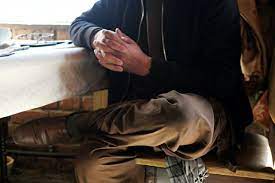“This is a product of the rise of organized crime gangs, and the inefficiency of security agencies and the lack of response from the Government.”
In 2023, Ecuador witnessed a troubling exodus of nine journalists compelled to flee the country due to pervasive death threats orchestrated by organized crime. This unsettling trend underscores the growing influence of criminal gangs, the inadequacies of security agencies, and the perceived lack of governmental responsiveness, as highlighted by the Inter American Press Association (IAPA).
The preliminary report from IAPA reveals that since April 2023, at least nine journalists have left Ecuador due to explicit threats on their lives. Additionally, six journalists continue to live in exile as of the report’s compilation, awaiting approval in the upcoming Press Freedom Commission Assembly. Disturbingly, three other journalists had to be relocated within the country due to intimidation, showcasing the pervasive nature of the threats.
Organizations such as the Andean Foundation for Media Observation and Study (Fundamedios) and the Periodistas Sin Cadenas Foundation, dedicated to safeguarding press freedom and the rights of journalists, have been actively monitoring and documenting these distressing developments. Their findings indicate that the death threats are concentrated on journalists who have either exposed politically sensitive matters, investigated criminal gang operations, or reported on crimes perpetrated by these groups. This surge in violence reached a horrific climax with the murder of journalist and presidential candidate Fernando Villavicencio on August 9th.
The IAPA attributes this distressing situation to the escalation of organized crime gangs and the apparent inefficiency of security agencies, coupled with what they perceive as a lack of response from the government led by President Guillermo Lasso.
According to authorities, the surge in homicides in recent years is linked to drug trafficking mafias and organized crime. Ecuador’s homicide rate has skyrocketed from 5.8 per 100,000 inhabitants to 25.62 in 2022. Experts suggest that the rate could further escalate to approximately 40 in 2023, potentially making Ecuador one of the most violent countries in Latin America.
Journalists say government offered no help
Among the journalists affected is Karol Noroña, a security issues specialist from the GK portal, who was the first of the nine to go into exile. Noroña, speaking at a hearing of the Inter-American Commission on Human Rights (IACHR), lamented the dire consequences, noting that the journalists had to abandon their homes and families. Noroña’s own plight stems from her outspoken criticisms regarding human rights violations in prisons, criminal governance, and alleged links between the State and organized crime.
Despite the severity of the situation, the affected journalists, including Noroña, express frustration at the apparent indifference of the Lasso government. Neither their cases nor the broader issue of press freedom violations have elicited any official statement or support from the government. Fundamedios and the Periodistas Sin Cadenas Foundation have documented over 220 and 257 attacks on the press, respectively, with more than half constituting death threats.
The IAPA cites specific instances as evidence of the dangerous environment faced by journalists, such as the attack on Lissette Ormaza, a news presenter for Majestad Televisión, who was assaulted while traveling in her vehicle. Another case involves a journalist who received death threats after publishing an article, subsequently being pursued by unidentified individuals on a motorcycle.
In October, pamphlets attributed to the “Jalisco New Generation Cartel” appeared in Manta and Quevedo, warning journalists against recording and publishing live videos of victims of hired assassins.
These incidents collectively underscore the perilous landscape journalists navigate in Ecuador, emphasizing the urgent need for comprehensive measures to ensure their safety and preserve press freedom.


0 Comments